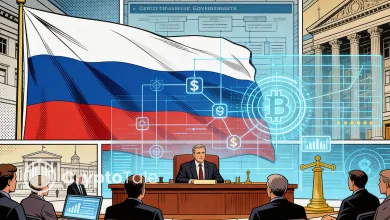Nicholas Truglia Gets 12-Year Sentence After Failing to Pay $20M Restitution

- Truglia promised to repay but did not return any of the $20 million stolen from the victim.
- The judge extended the sentence as Truglia lived lavishly without paying restitution.
- SIM-swapping scams have caused huge crypto losses, and courts are getting tougher on offenders.
Nicholas Truglia, who is convicted of a $20 million cryptocurrency theft, has received an additional 12-year sentence after failing to repay court-ordered restitution. According to Bloomberg, Judge Alvin Hellerstein imposed the penalty in a Manhattan federal court, citing Truglia’s complete lack of repayment despite his stated willingness and ability to pay.
Truglia previously served 12 months of an 18-month sentence after pleading guilty in 2021 to conspiracy to commit wire fraud. The scheme involved SIM swapping—hijacking a victim’s phone number to access and drain cryptocurrency wallets. Despite signing a restitution agreement, Truglia did not return any of the stolen funds.
Prosecutors revealed that Truglia maintained over $61 million in crypto, art, and jewelry assets, yet failed to deliver a single payment to his victim, Michael Terpin. The judge called out Truglia’s ongoing lavish lifestyle, despite no legal income, which further influenced the new sentence.
SIM-Swap Fraud and Crypto Theft Scheme
Truglia’s fraud targeted wealthy crypto investors using SIM-swapping, a tactic where criminals take control of victims’ phone numbers. This allows them to bypass security protocols tied to those numbers, including two-factor authentication used by crypto exchanges and banks.
According to the Department of Justice, Truglia and others tricked telecom employees into transferring a victim’s number to a SIM card under their control. Once inside the victim’s accounts, they stole over $20 million in crypto assets and converted the stolen funds into bitcoin.
The victim, investor Michael Terpin, filed a $224 million lawsuit in 2018 against AT&T, accusing the telecom giant of negligence. Terpin claimed AT&T failed to secure his account, leading to the SIM swap. He later won a $75 million civil judgment against Truglia in 2019, securing full damages.
The crypto theft that hit Terpin was among several SIM-swap attacks tied to Truglia in 2018. Authorities arrested him that same year in connection with multiple incidents in California’s Bay Area targeting high-value crypto holders.
Courtroom Fallout and Sentence Extension
During the July 2 hearing, Judge Hellerstein cited Truglia’s failure to honor his restitution agreement. “Despite his signed consent to the restitution order, he made no restitution payments,” Hellerstein wrote in the court filing.
Truglia’s attorneys claimed he surrendered “every valuable asset he has access to,” including a Wells Fargo bank account. They argued that resentencing violated his constitutional protections against double jeopardy and due process rights. The court rejected that claim.
The judge expressed deep dissatisfaction with Truglia’s conduct, particularly as he showed no progress toward the $20.4 million restitution. The ruling reflected the court’s firm position on accountability in financial crimes, particularly when restitution is ignored despite the means to pay. This resentencing is part of a growing legal emphasis on crimes involving cryptocurrency.
Related: Celsius Founder Mashinsky Gets 12 Years for Crypto Fraud
Ongoing Risks in Crypto Security
The case reflects growing concerns over SIM swapping, which has resulted in over $100 million in crypto thefts to date. The tactic primarily targets individual investors with large holdings, often exploiting weak telecom protections.
The court’s move in the Truglia case serves as a cautionary lesson for other renegades. According to legal observers, it might reflect the course of action on increased punishments for cybercrime cases in which the victims lose heavily and are not compensated.
With Truglia now facing an extended prison sentence, the case highlights the growing need for stronger security practices in the crypto space. It serves as a wake-up call for investors, platforms, and telecom providers to adopt better authentication protocols and guard against SIM-swap vulnerabilities.




